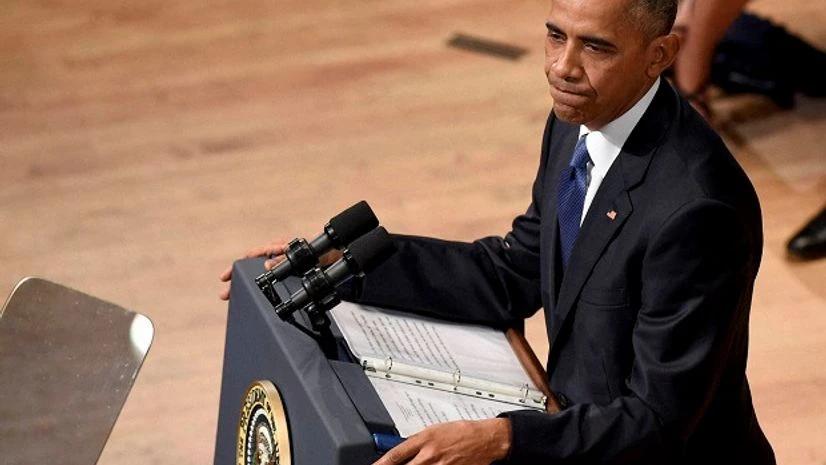President Barack Obama has cut short the sentences of 111 federal inmates in another round of commutations for those convicted of nonviolent drug offences.
Obama yesterday has long called for phasing out strict sentences for drug convictions, arguing they lead to excessive punishment and incarceration rates unseen in other developed countries.
White House Counsel Neil Eggleston said the commutations underscored the president's commitment to using his clemency authority to give deserving individuals a second chance. He said that Obama has granted a total of 673 commutations, more than the previous 10 presidents combined. More than a third of the recipients were serving life sentences.
"We must remember that these are individuals sons, daughters, parents, and in many cases, grandparents who have taken steps toward rehabilitation and who have earned their second chance," Eggleston said. "They are individuals who received unduly harsh sentences under outdated laws for committing largely nonviolent drug crimes."
Eggleston noted that Obama also granted commutation to 214 federal inmates earlier in the month. With yesterday's additions, Obama has granted the greatest number of commutations for a single month of any president.
Also Read
Eggleston says he expects Obama to continue using his clemency authority through the end of his administration. He said the relief points to the need for Congress to take up criminal justice reform. Such legislation has stalled, undercut by a rash of summer shootings involving police and the pressure of election-year politics.
Two goals of the legislation are to reduce overcrowding in the nation's prisons and save taxpayer dollars. In 1980, the federal prison population was less than 25,000. Today, it is more than 200,000.
But the legislation's supporters have encountered opposition from some Republicans who argue that changes could lead to an increase in crime and pose a greater danger to law enforcement.
Eggleston said Obama considered the individual merits of each application to determine that an applicant is ready to make use of their second chance.
One of those granted relief was Tim Tyler, who at 25 was sentenced to life in federal prison for possession with intent to deliver LSD as he followed the Grateful Dead. He is now set to be released on August 30, 2018, conditioned upon enrolment in residential drug treatment. Families Against Mandatory Minimums, an advocacy group, said it had been working on the Tyler family's behalf.
"We applaud the president for using the clemency power to free people who fully expected to die in prison and for shining a light on the excesses of federal drug sentencing." said Julie Stewart, the group's president.
The release dates for the inmates vary. Most are set to be released December 28.

)
